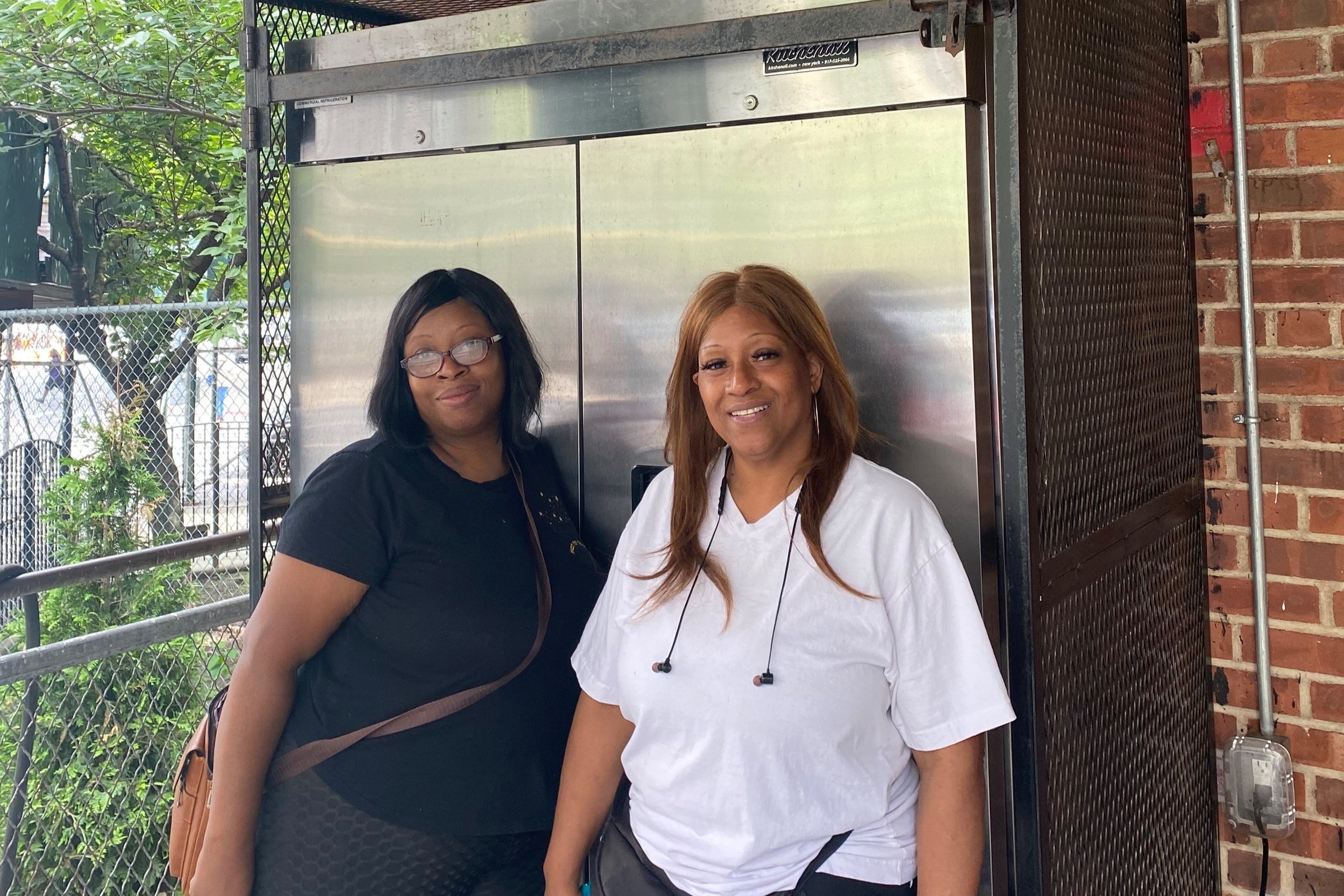
Meet Nina Saxon and Ida Vazquez
Written By Harrison Tillinghast
The COVID pandemic had a significant impact on food prices and availability. As prices increased, and fresh food became scarce, “food insecurity” became an issue for more and more people. Lower income families were hit hardest. It was during this time that one community inside the New York City Housing Authority (NYCHA) had an amazing response—a community fridge!
The Carver Houses in East Harlem are made up of 13 buildings between East 99th and 106th Street and are home for almost 3,000 residents. As the pandemic made access to nutritious food more expensive and more difficult, tenant leaders at the Carver Houses decided to set up a community fridge. Impact on the community, especially among elderly residents and those with large families, has been truly remarkable. After four years in operation, the fridge continues to play an important role in the community. I had the opportunity to speak with tenant president Nina Saxon and tenant vice president Ida Vazquez who manage the fridge and promote it with the surrounding community, non-profits, and other organizations that can help. Their stories are incredibly inspiring and helpful for anyone looking to jump in and help fight food insecurity.
The Carver Houses community fridge is located on a small outdoor terrace near 102nd Street. Its central location makes it easy for residents to take what they need and convenient for anyone who wants to drop off food to help fill the fridge. Today, the Carver Houses community fridge stands as a symbol of generosity, hope, and belonging. The belief that no one should have to go without nutritious food has inspired Nina and Ida to take a leadership role with the fridge and build its presence in the community. “Food is a basic human right, and no one should go without food or shelter,” says Nina Saxon. “Being stewards in our community and making sure that people have food to eat so they won’t go hungry drives us to support this fridge.” The fridge is supported by volunteers throughout the city who are passionate and genuinely want to help. This includes nearby churches and synagogues, local restaurants with food that will spoil, families with leftovers, and even friends and families of patients at Mount Sinai Hospital who happen to notice the fridge. However, despite all this amazing help, food in the fridge is often gone quickly. Ida says she’s now spending more time networking and reaching out to food pantries and non-profits to find out how they can receive more food, more often.
Despite the challenges, managing the fridge has been extremely rewarding for Nina and Ida. Both say they find every day at the fridge to be a very memorable experience for them. Ida said, “Everyone is so thankful when people reach out and give food for the fridge—it puts tears in my eyes and everyone else’s, and we wish we could give more.” Seeing the appreciation on the faces of both the volunteers and residents inspires Nina and Ida to continue growing the fridge’s impact in the community. In addition to providing nutritious food and fighting food insecurity, the fridge works as a “magnet” according to Ida. “Fresh food brings residents out and this gives us the opportunity to share information on how they can become involved in other things that bring our community together.”
Today, anyone can help support the fridge by stopping by and dropping off food. Honestly, nothing is too small. You can also help by networking, fundraising, or becoming involved with a non-profit that supports the fridge.
While the COVID pandemic is settling down, rising rent and food prices are putting more pressure on the fridge to provide a sustainable amount of food. In the face of adversity, Carver Houses community fridge is a shining example of what can be achieved when people care for their neighbors, work together, and take action.
Carver Houses community fridge is located at 102nd Street and Madison Avenue. You can drop off food anytime in the fridge. Together, we can nourish our community by joining the fight against food insecurity.
